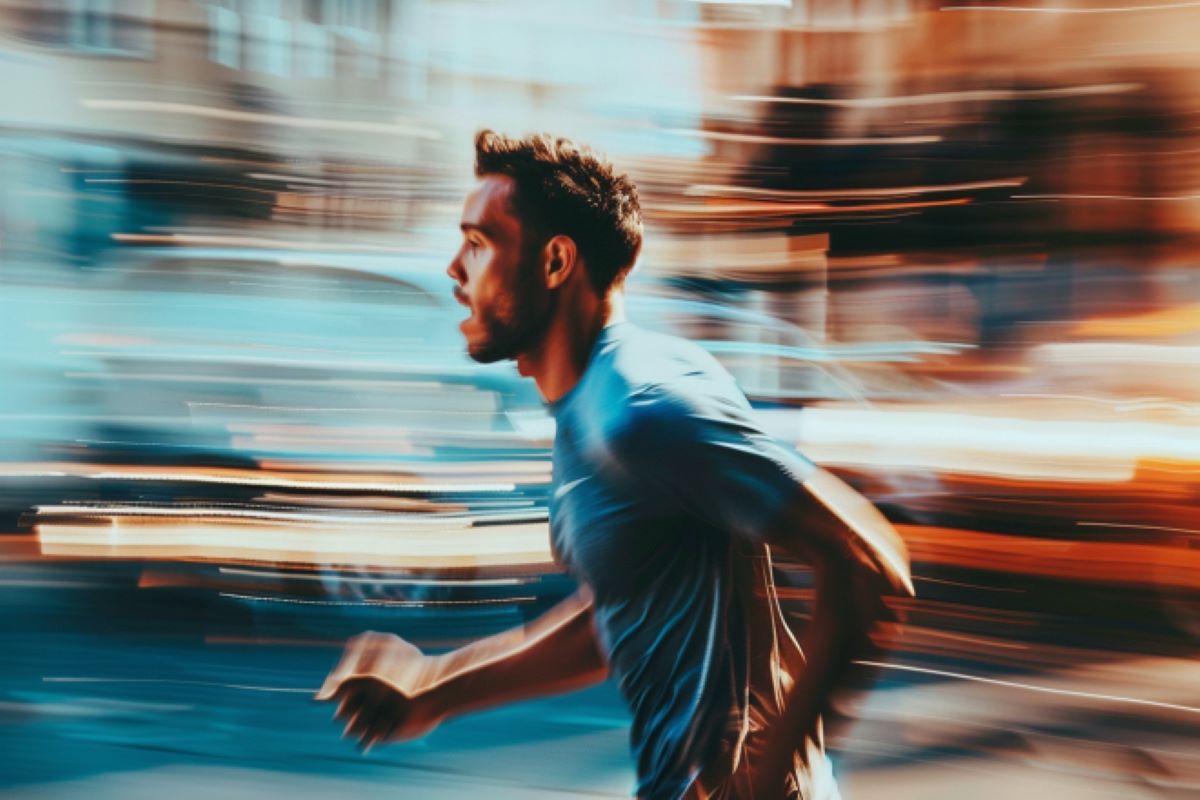Exercise distorts time perception – Neuroscience News

Summary: People perceive time as passing more slowly when they are exercising than when they are resting or after exercising. The research involved participants undergoing a time perception task under different cycling conditions, including solo and competitive scenarios.
The results suggest that slowing down time perception could influence enjoyment of exercise and optimization of performance. This new insight into how exercise affects our perception of time opens new avenues for improving exercise routines and competition strategies.
Highlights:
- Time perception slows during physical activity compared to periods of rest or after exercise.
- The study tested various cycling conditions, such as solo trials and competition scenarios with avatars, but found no additional effects of competition on time perception.
- The research could help tailor exercise experiences to be more enjoyable and effective, potentially using altered perception of time to improve performance and motivation.
Source: Christ College Canterbury
Published in the journal Brain and behaviorResults from a new study show for the first time that individuals tend to experience time as moving more slowly when they are exercising than when they are resting or after completing their exercise.
Professor Andrew Edwards, Director of the School of Psychology and Life Sciences at Christ Church University, Canterbury, led the work with Dr Stein Menting and Associate Professor Marije Elferink-Gemser from the University of Groningen and with Professor Florentina Hettinga from Northumbria University.

The team identified that not only was time perception slowed during exercise, but this effect was not further affected by the presence of other competitors.
Participants performed a standardized time perception task before, during and after exercise and the cycling trials included different conditions: solo trials, trials with a passive companion avatar and competitive trials against an active opponent avatar.
Professor Edwards said: “Our findings have important implications for healthy exercise choices, enjoyment levels and also how we use this information to optimize performance. »
“The study, however, has several caveats,” he added. “It is still unclear whether the results are generalizable. Although the participants were not professional cyclists, they were in good physical shape, which is not the case for everyone.
“The sample size of 33 people offers an intriguing first look at how our perception of time can be distorted – and perhaps a clue as to how to take it to the next level while exercising.”
“The main areas of work are to see how we can motivate people to exercise, avoid/mitigate negative associations with time seemingly passing slowly and perhaps see if we can use this apparent slowing down of time to our advantage.”
“This study would not have been possible thanks to the many contributions of my colleagues and the partnership between our respective universities.” » said Professor Edwards.
Study participants completed the 4-kilometer cycling test series on a Velotron cycle ergometer with large displays simulating race course conditions with and without competitors.
The group’s next steps are to extrapolate these findings to other groups of people and examine possible impacts on health and performance.
About this exercise and current research on time perception
Author: Andrew Edwards
Source: Christ College Canterbury
Contact: Andrew Edwards – Christ College University of Canterbury
Picture: Image is credited to Neuroscience News
Original research: Free access.
“Time perception is slowed in response to exercise, an effect not yet compounded by competitors: behavioral implications for exercise and health” by Andrew Edwards et al. Brain and behavior
Abstract
Time perception is slowed in response to exercise, an effect not yet compounded by competitors: behavioral implications for exercise and health
Introduction
The theory of relativity posits that time is relative to context and exercise appears to be such a situation. The purpose of this study was to examine whether situational factors such as perceived effort and the introduction of an opponent influence competitors’ perception of time.
Methods
Thirty-three active adults (F = 16; M = 17) completed three standardized 4 km cycling trials in randomized order. Velotron 3D software was used to create a visual and virtual environment representing (1) a solo time trial (FAM and SO), (2) a time trial with a passive opposing avatar (PO) and (3) a time trial with an avatar of the opponent and instruction of the participant to actively complete the trial before the opponent (AO). Participants were asked to estimate a 30-second period using a standardized repeatability protocol before exercise at 500 m, 1500 m, 2500 m and after exercise. Rate of perceived exertion (RPE) was measured throughout the trials.
Results
Exercise trials revealed that time was perceived as “slow” relative to chronological time during exercise, compared to resting and post-exercise measurements (p < 0.001). There were no differences between exercise conditions (SO, PO, and AO) or times (500 m, 1500 m, and 2500 m). RPE increased throughout the trials.
Conclusion
The results of this study demonstrate for the first time that exercise with and without the influence of opponents influences time perception. This finding has important implications for healthy exercise choices and also for optimal performance. Regardless of RPE, time was perceived to pass more slowly during exercise, underlying inaccurate pacing and decision-making in physical activities.
News Source : neurosciencenews.com
Gn Health




